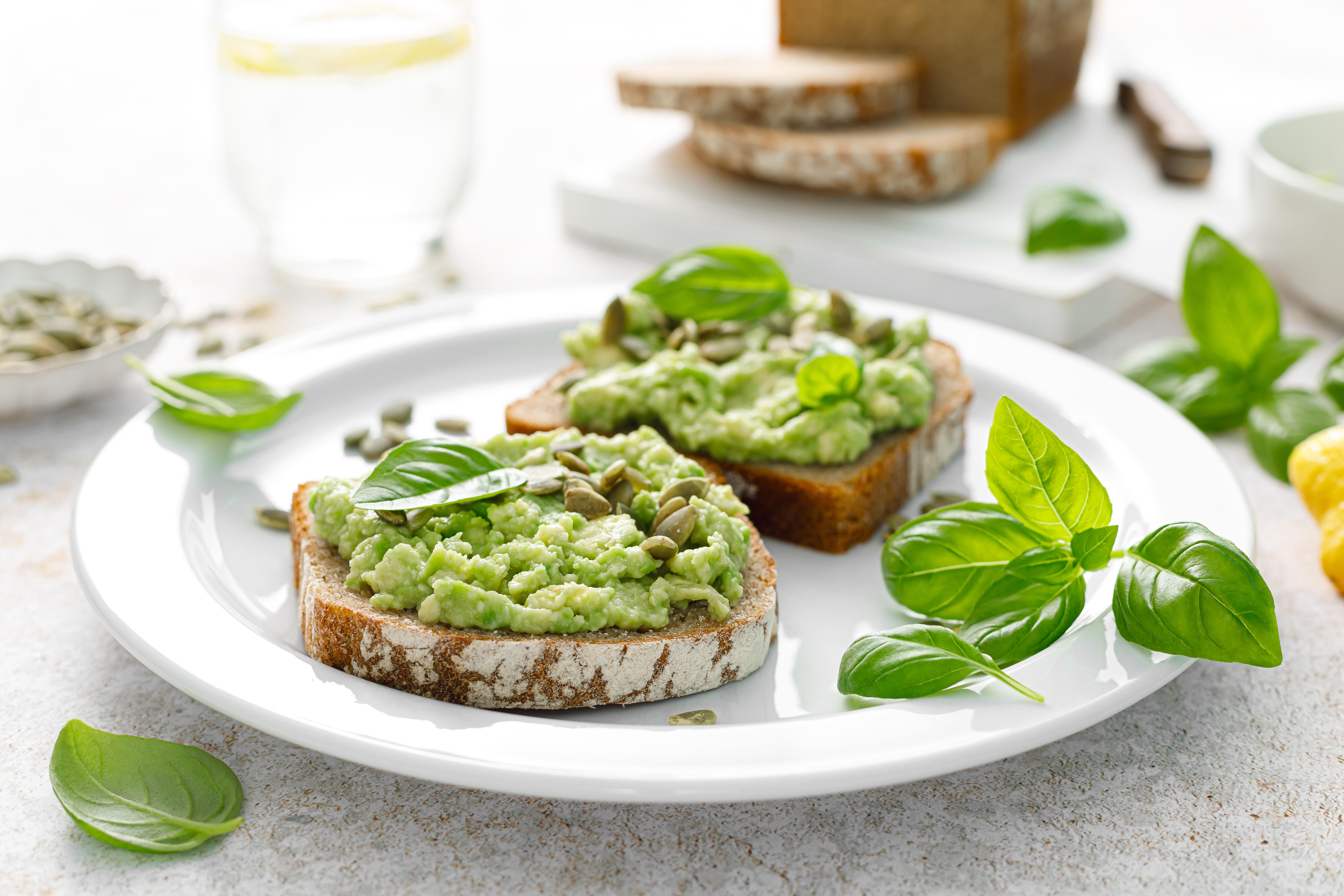13 Mood-Boosting Superfoods That Can Transform Your Mental Health
In an era where mental health is increasingly recognized as a critical component of overall well-being, the exploration of how diet influences mood and cognitive function is gaining momentum. The adage "you are what you eat" has never been more pertinent, as scientific research continues to uncover the profound impact of nutrition on mental health. This article delves into the world of superfoods—nutrient-rich powerhouses that can transform your mental health by boosting your mood. By understanding the intricate link between diet and mental wellness, we can make informed choices that nurture both body and mind. The following sections will explore 13 superfoods that hold the power to elevate your mood, enhance cognitive function, and promote emotional resilience. Each superfood is supported by scientific evidence, offering a comprehensive guide to harnessing the power of what you eat to transform your mental health.
1. Blueberries - Nature's Antidepressant

Blueberries, often referred to as nature's antidepressant, are rich in antioxidants, particularly flavonoids, which have been shown to improve brain function and mood. Studies suggest that these tiny berries can enhance cognitive performance and protect the brain from oxidative stress, which is linked to depression and anxiety. The presence of anthocyanins, a type of flavonoid, is believed to be responsible for these mood-boosting effects. Regular consumption of blueberries has been associated with increased levels of dopamine, a neurotransmitter that plays a key role in motivation and pleasure. Moreover, blueberries are a good source of vitamin C, which is known to reduce cortisol levels, the body's primary stress hormone. Incorporating blueberries into your diet, whether in smoothies, salads, or as a snack, can be a delicious and effective way to support mental health.
2. The Omega-3 Power of Salmon

Salmon is a fatty fish that is celebrated for its high content of omega-3 fatty acids, particularly EPA and DHA, which are crucial for brain health. Omega-3s are known to have anti-inflammatory properties and play a significant role in maintaining the structure and function of brain cells. Numerous studies have linked omega-3 consumption to a decreased risk of depression and anxiety. These fatty acids are believed to influence the production and function of neurotransmitters such as serotonin and dopamine. Regular consumption of salmon can lead to improved mood, reduced symptoms of depression, and enhanced cognitive function. Additionally, salmon is a great source of vitamin D, which has been associated with mood regulation and the prevention of mood disorders. Incorporating salmon into your diet a few times a week can be a strategic move to enhance mental well-being.
3. Avocado - The Brain's Best Friend

Avocados are a rich source of monounsaturated fats, which are essential for maintaining healthy brain function. These healthy fats support the myelin sheath, which insulates nerve cells and facilitates efficient communication between neurons. Avocados also contain folate, a B-vitamin that is crucial for mood regulation and has been linked to a reduced risk of depression. The fruit's high levels of potassium help regulate blood pressure, which can have a calming effect on the mind. Furthermore, avocados are packed with vitamin E, an antioxidant that protects brain cells from oxidative stress. Consuming avocados regularly can enhance cognitive function, improve concentration, and elevate mood. Whether spread on toast, added to salads, or blended into smoothies, avocados are a versatile and delicious addition to a mood-boosting diet.
4. The Gut-Brain Axis and Fermented Foods

The gut-brain axis is a fascinating communication network that links the gastrointestinal tract and the central nervous system. This connection highlights the impact of gut health on mental well-being. Fermented foods, such as yogurt, kefir, sauerkraut, and kimchi, are rich in probiotics—beneficial bacteria that support a healthy gut microbiome. A balanced microbiome is crucial for the production of neurotransmitters like serotonin, which regulates mood and anxiety. Studies have shown that regular consumption of fermented foods can reduce symptoms of depression and anxiety by promoting a healthy gut environment. The fermentation process also enhances the bioavailability of nutrients, making them more accessible to the body. Including fermented foods in your diet can improve digestion, boost mood, and support overall mental health.
5. Dark Chocolate - A Sweet Mood Enhancer

Dark chocolate is not only a delectable treat but also a potent mood enhancer. It contains flavonoids, caffeine, and theobromine, which have been shown to improve mood and cognitive function. The consumption of dark chocolate triggers the release of endorphins, the body's natural mood lifters. It also stimulates the production of serotonin, contributing to feelings of happiness and well-being. The presence of magnesium in dark chocolate plays a role in stress reduction and relaxation. However, moderation is key, as excessive consumption can lead to negative health effects. Opting for dark chocolate with a high cocoa content ensures maximum health benefits. Incorporating a small piece of dark chocolate into your daily routine can provide a delightful boost to your mood and mental health.
6. Spinach and Leafy Greens - Nutrient-Dense Mood Boosters

Leafy greens, such as spinach, kale, and Swiss chard, are nutritional powerhouses that can significantly impact mental health. These greens are rich in folate, which is essential for the production of neurotransmitters like serotonin and dopamine. A deficiency in folate has been linked to depression and cognitive decline. Additionally, leafy greens contain magnesium, a mineral known for its calming effects on the nervous system. The high levels of antioxidants in these greens protect brain cells from oxidative stress and inflammation, both of which are associated with mood disorders. Regular consumption of leafy greens can enhance cognitive function, improve mood, and reduce the risk of depression. Incorporating these greens into salads, smoothies, or as a side dish can provide a substantial boost to mental well-being.
7. Walnuts - Brain-Shaped Mood Boosters

Walnuts are a unique superfood that resembles the shape of the brain, and fittingly, they offer numerous benefits for mental health. They are an excellent source of alpha-linolenic acid (ALA), a plant-based omega-3 fatty acid that supports brain function and reduces inflammation. Walnuts also contain polyphenolic compounds that protect brain cells from oxidative damage. Regular consumption of walnuts has been linked to improved cognitive function, better memory, and reduced symptoms of depression. The presence of melatonin in walnuts can also aid in regulating sleep patterns, which is crucial for maintaining mental health. Including a handful of walnuts in your diet as a snack or topping for salads and oatmeal can enhance your mood and cognitive health.
8. The Power of Turmeric and Curcumin

Turmeric, a vibrant yellow spice, has been used for centuries in traditional medicine for its anti-inflammatory and antioxidant properties. The active compound in turmeric, curcumin, is known for its ability to cross the blood-brain barrier and exert neuroprotective effects. Curcumin has been shown to increase levels of brain-derived neurotrophic factor (BDNF), a protein that supports the growth and survival of neurons. Low levels of BDNF have been associated with depression and cognitive decline. Additionally, curcumin enhances the production of serotonin and dopamine, contributing to improved mood and mental clarity. Incorporating turmeric into your diet through curries, teas, or supplements can provide a natural and effective way to support mental health.
9. The Mood-Boosting Benefits of Bananas

Bananas are a convenient and nutritious fruit that offers several mood-boosting benefits. They are rich in vitamin B6, which is essential for the production of neurotransmitters like serotonin and dopamine. Bananas also contain tryptophan, an amino acid that the body converts into serotonin, promoting feelings of happiness and relaxation. The natural sugars in bananas provide a quick energy boost, while the fiber content ensures a steady release of energy, preventing mood swings. Additionally, bananas are a good source of magnesium, which aids in stress reduction and muscle relaxation. Including bananas in your daily diet as a snack or in smoothies can provide a natural and effective way to enhance mood and mental well-being.
10. The Calming Effects of Chamomile Tea

Chamomile tea is a popular herbal remedy known for its calming and soothing properties. It contains apigenin, an antioxidant that binds to receptors in the brain, promoting relaxation and reducing anxiety. Chamomile tea has been shown to improve sleep quality and alleviate symptoms of insomnia, which is crucial for maintaining mental health. The anti-inflammatory properties of chamomile can also help reduce stress and promote a sense of calm. Regular consumption of chamomile tea can enhance mood, reduce anxiety, and support overall mental well-being. Enjoying a warm cup of chamomile tea in the evening can be a comforting ritual that promotes relaxation and mental clarity.
11. The Energizing Impact of Quinoa

Quinoa is a versatile and nutrient-dense grain that offers numerous benefits for mental health. It is a complete protein, containing all nine essential amino acids, which are crucial for neurotransmitter production and brain function. Quinoa is also rich in magnesium and iron, both of which play a role in energy production and mood regulation. The high fiber content of quinoa ensures a steady release of energy, preventing blood sugar spikes and mood swings. Additionally, quinoa contains B-vitamins, which are essential for cognitive function and emotional well-being. Incorporating quinoa into your diet as a side dish, salad base, or breakfast porridge can provide a substantial boost to mood and mental health.
12. The Mental Health Benefits of Green Tea

Green tea is a popular beverage known for its numerous health benefits, including its positive impact on mental health. It contains L-theanine, an amino acid that promotes relaxation and reduces stress without causing drowsiness. L-theanine also enhances the production of dopamine and serotonin, contributing to improved mood and cognitive function. The caffeine content in green tea provides a gentle energy boost, enhancing alertness and concentration. Additionally, green tea is rich in antioxidants, which protect brain cells from oxidative damage. Regular consumption of green tea can enhance mood, reduce anxiety, and support overall mental well-being. Enjoying a cup of green tea in the morning or afternoon can be a refreshing and invigorating way to boost mental health.
13. The Mood-Enhancing Effects of Sweet Potatoes

Sweet potatoes are a delicious and nutritious root vegetable that offers several mood-enhancing benefits. They are rich in complex carbohydrates, which provide a steady release of energy and prevent mood swings. Sweet potatoes also contain vitamin B6, which is essential for the production of neurotransmitters like serotonin and dopamine. The high levels of antioxidants in sweet potatoes protect brain cells from oxidative stress and inflammation. Additionally, sweet potatoes are a good source of magnesium, which aids in stress reduction and relaxation. Including sweet potatoes in your diet as a side dish or in soups and stews can provide a natural and effective way to enhance mood and mental well-being.
Embracing a Mood-Boosting Diet

The journey through these 13 superfoods reveals the remarkable potential of diet in transforming mental health. By incorporating these nutrient-rich foods into your daily routine, you can harness the power of what you eat to boost your mood, enhance cognitive function, and promote emotional resilience. Each superfood offers unique benefits, from the omega-3 power of salmon to the calming effects of chamomile tea, providing a comprehensive approach to supporting mental well-being. Embracing a mood-boosting diet is a proactive step towards nurturing both body and mind, empowering you to lead a healthier, happier life. As research continues to uncover the intricate link between diet and mental health, the importance of mindful eating becomes increasingly clear. By making informed dietary choices, you can take control of your mental health and unlock the transformative power of nutrition.